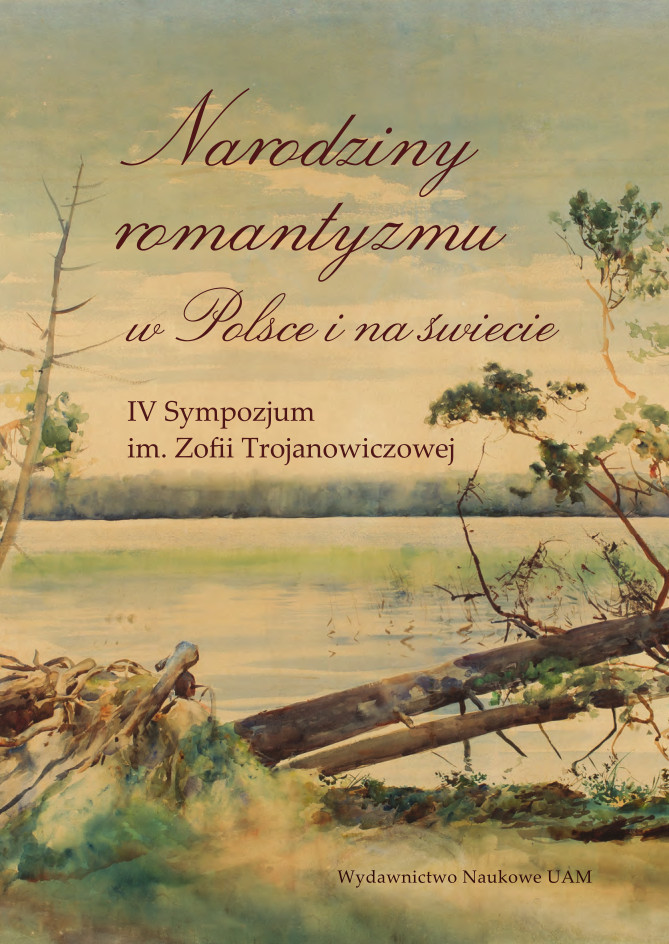Pierwszy tom Poezji Adama Mickiewicza jako punkt wyjścia
The first volume of Adam Mickiewicz’s Poetry as a starting point
Author(s): Kwiryna Ziemba
Subject(s): Language and Literature Studies, Studies of Literature, Polish Literature
Published by: Wydawnictwo Naukowe Uniwersytetu Adama Mickiewicza
Keywords: poetry; nation; Romanticism; Polish literature; Adam Mickiewicz; Ballads and Romances
Summary/Abstract: The first volume of Mickiewicz’s Poetry (Vilnius 1822) is regarded as the manifesto of Romanticism in Polish literature, although ordinarily only part of this vo- lume, namely Ballads and Romances, is taken into consideration. This article analyses the structural and thematic relationships between the three parts of the volume: the extensi- ve prose preface, the cycle of Ballads and Romances and Miscellaneous Poems. The volume as a whole is interpreted as a project and the first realisation of a new kind of Polish poetry: national through the use of folk motifs and the assumption of the widest, popular, and not exclusively elitist addressee, universal through being rooted in literary tradition from antiquity to Mickiewicz’s times. Poetry is supposed to speak about matters of importance to the nation, reviving its historical memory and bringing hope for the future, and many elements of the poetic programme and the themes of Poetry are continued in Mickiewicz’s later work. The utopian nature of the 1822 poetry programme is signalled in the subsequ- ent sections of the article. The poet assumed that the people, not the elite, formed the nucleus of the nation, and that folk imagination and creativity were the basis of national literature. Such poetry could not be created consistently if national literature in the Polish language was to grow out of the work of the people from several nations and using several languages in the pre-Partition Republic, and if it was to address itself to this multi-ethnic people. Moreover, if citizens did not have political power and representation, they were first and foremost serfs. This is why Mickiewicz’s work tends towards a “history of the no- bility”: an example would be Pan Tadeusz, where ‘the people’ refers much more clearly to the petty gentry than in 1822’s Poetry, and the accepted tradition is that of Polish literature from the Renaissance to the Enlightenment, which is no longer in opposition to folk art.
Book: Narodziny romantyzmu w Polsce i na świecie
- Page Range: 57-77
- Page Count: 21
- Publication Year: 2024
- Language: Polish
- Content File-PDF

